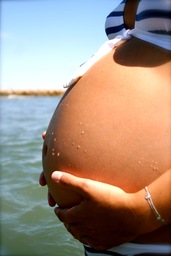If you’re pregnant or breastfeeding, it’s important to know your vitamin B12 levels, in order to avoid vitamin B12 deficiency, which can cause harm to your baby and also make you feel severe fatigue, depression, and early symptoms of nerve damage.
What is Vitamin B12?
Vitamin B12 is a water-soluble nutrient which your body needs to maintain a healthy nervous system, produce ample amounts of red blood cells, support brain functioning and promote good metabolism.
Vitamin B12 also monitors homocysteine, an amino acid which is associated with increased risk for heart attack and stroke.
How can I include vitamin B12 in my diet?
Animal proteins are especially high in vitamin B12. For that reason, vegans are warned to get B12 supplementation regularly in order to avoid B12 deficiency. Food sources which are rich in vitamin B12 include:
- Lean meats, particularly beef chuck and organ meats, such as liver, kidneys and heart
- Fish, including salmon and halibut, and shellfish, such as clam, crab, mussels and oysters
- Dairy products, including Swiss cheese, yogurt and milk
- Eggs
- Fortified cereals
On Becoming Vegan: Avoiding Vitamin B12 Deficiency and Others
What are the symptoms of vitamin B12 deficiency?
Vitamin B12 deficiency can only be diagnosed through a blood screening. It’s important to recognize vitamin B12 deficiency symptoms in the early stages, in order to prevent serious nerve damage, memory loss, mood disorders, and increased risk for heart attack or stroke.
Some of the symptoms of vitamin B12 deficiency are:
 Depression
Depression- Chronic fatigue
- Sleep difficulties
- Aggressiveness
- Hallucinations
- Weakness
- Short-term memory loss
- Heart palpitations
- Numb feeling in hands and feet
- Altered taste perception
- Decreased motor control
B12 Deficiency: Don’t Ignore the Symptoms
Are nursing mothers at risk for getting vitamin B12 deficiency?
Breast feeding mothers are more likely to suffer vitamin deficiencies than mothers who bottle-feed. This is because they share a significant amount of nutrients they consume with their baby. In order to maintain healthy levels of vitamin B12, nursing moms must make up the difference by either taking vitamin B12 supplements or increasing their consumption of B12 in their diet.
Pregnant Moms and Low B-12 Levels: Let ‘em Eat Steak!
If I nurse often, is my baby still at risk for becoming deficient in vitamin B12?
Cow’s milk and baby formula are rich sources of vitamin B12, and so is the breast milk of a mother with healthy levels of vitamin B12.
The milk of a nursing mother who has vitamin B12 deficiency, however, will likewise have low levels of vitamin B12.
Furthermore, while an adult could harbor low B12 levels for a long time before showing any symptoms of depletion, a malnourished infant can use up his vitamin B12 stores much more rapidly, leaving a very small window of opportunity for treatment.
If left untreated, vitamin B12 deficiency in infants could lead to:
- Severe vomiting
- Lethargy
- Anemia
- Stinted brain development
- Failure to thrive
- Death
Are Vegans in France Responsible for Breast-fed Baby’s Death?
What vitamin B12 supplements are available for me and my baby?
Nursing vegan moms and pregnant women are strongly advised to supplement with vitamin B12. If vitamin B12 deficiency is diagnosed, your physician might prescribe vitamin B12 injections.
Also read:
Natalie Portman Chooses B12 over Veganism
Vitamin-Enriched Chocolate Milk Facing School Ban
Sources:




